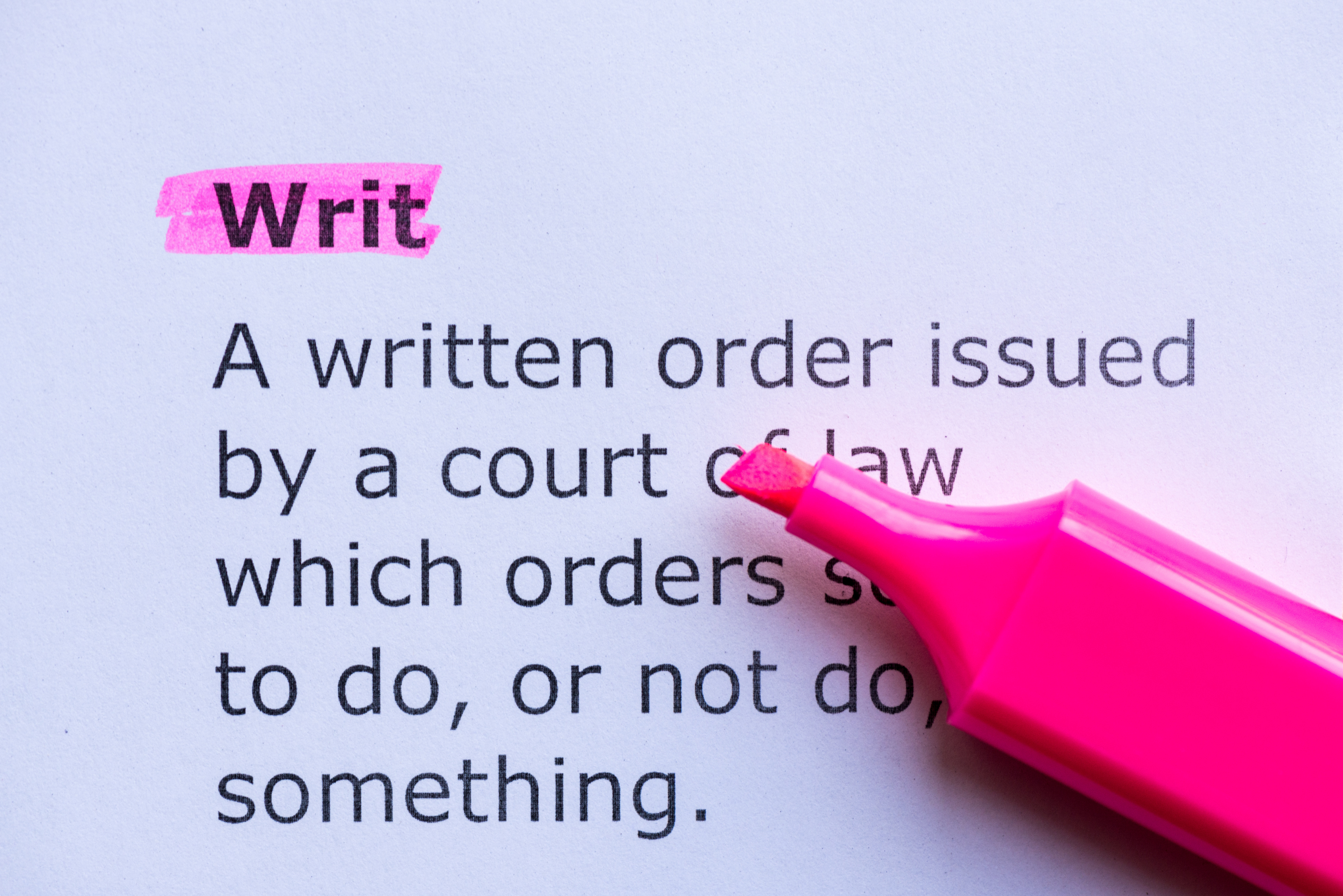What is a Writ of Habeas Corpus?
“Habeas corpus” is Latin for “you have the body.” A writ of habeas corpus can be an important tool in any criminal case. It is meant to protect your Constitutional rights.
This writ is used to challenge any form of confinement or restraint which takes place in an unlawful manner, or to an unlawful degree.
A criminal lawyer can use a writ of habeas corpus both for pre-trial, and post-trial reasons. For example, if you’re in jail awaiting trial because you can’t make a high bond payment, then the writ could be used to earn you a review of your bond, or even a waiver of your bond.
If you’re out on bail but have certain restrictions, such as a curfew, or a driving restriction, causing undue hardship the writ could also be used to challenge these restrictions.
After trial, the writ is most often used to start the appeals process. It can call attention to a constitutional violation that happened during your trial. For example, you have the 6th amendment right to an effective attorney. The writ can request an appeal after providing facts as to why your attorney was not effective.
Sometimes a writ of habeas corpus becomes necessary after you take a plea bargain. This would most often happen if the prosecutor did not uphold his or her end of the agreement, which can result in a guilty plea that was essentially involuntary. It can also happen when a court mistake invalidates the plea bargain. The Writ is the only way your attorney can legally point out the mistake in a way which might earn you some relief.
Finally, the writ of habeas corpus is useful in some immigration proceedings. For example, earlier this year, Adham Amin Hassoun filed a writ to challenge his detention at an immigration facility in Buffalo. The language in the writ helps to demonstrate the kinds of challenges which might be brought in such a document.
“This case concerns the government’s asserted power to hold Mr. Hassoun in detention indefinitely—potentially for the rest of his life—based on nothing more than a unilateral executive branch determination that his release could pose a national security ‘risk’ or terrorism ‘threat.'”
The writ goes on to make a case for why Hassoun’s detention was a violation of due process.
You can read the whole example here.
The results of this filing has yet to be reported on the news. It merely serves as an example of how a criminal or immigration attorney might use this document to your advantage.
If you’re in trouble with the law, you’ll need a defense attorney who has the skill and ability to use every tool the law makes available to help you get justice. Don’t wait. Call Koch Law for a consultation today.
See also:
What to Do If You Are An Immigrant Accused of a Crime
What Are the Conditions of Making Bail in New York?
When Can the Police Search Your Devices?






